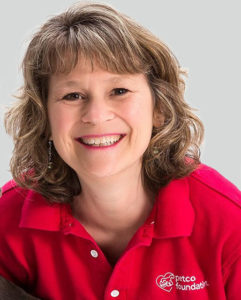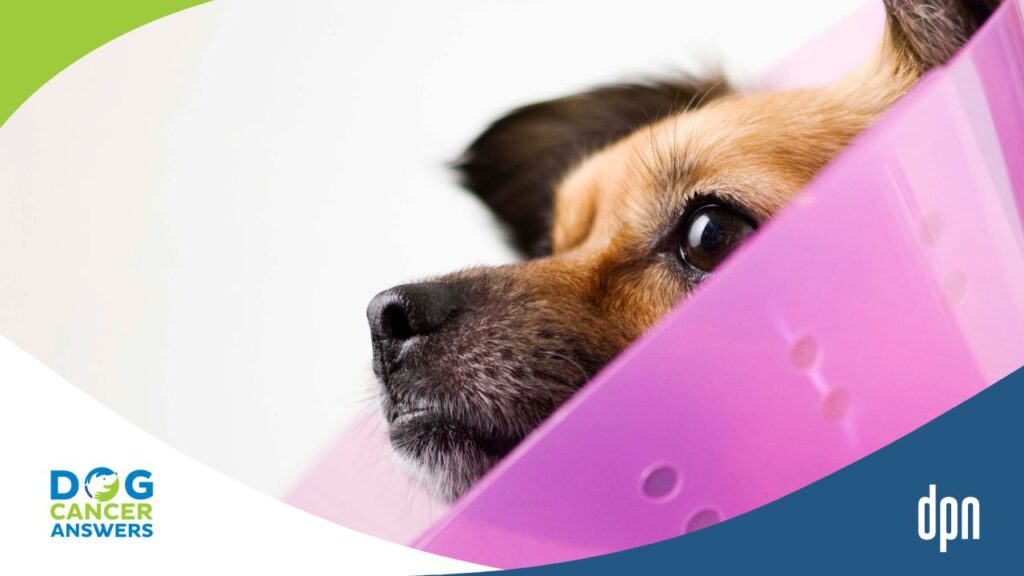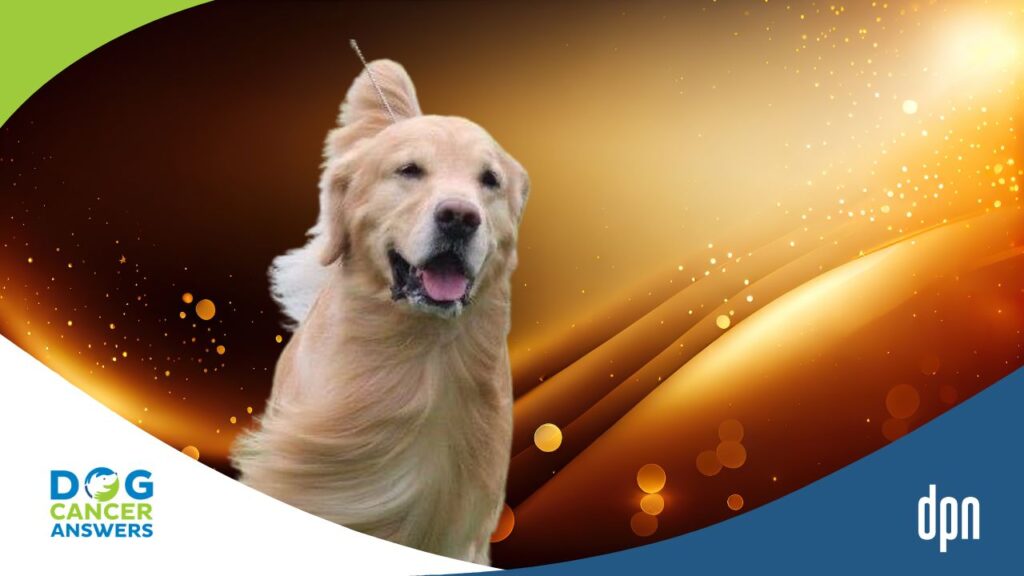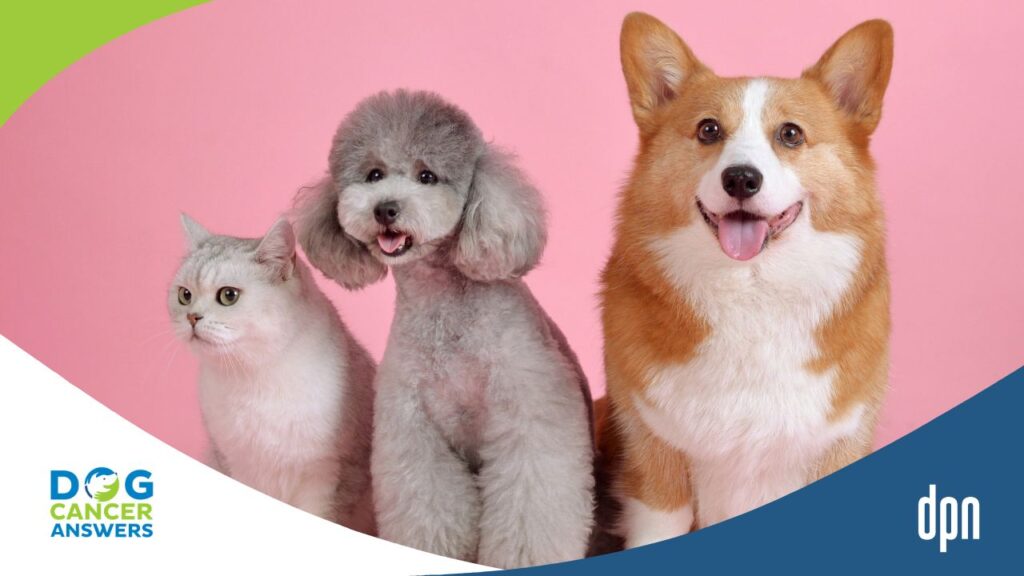EPISODE 185 | RELEASED September 26, 2022
How Petco Love Helps Dog Cancer Funding | Susanne Kogut
Petco Love has invested $18 million in dog cancer funding, and continues to expand their offerings to help dogs.
SHOW NOTES
Petco Love is a nonprofit organization (previously known as the Petco Foundation) that offers several programs to help dogs and the people who love them.
Petco Love’s President, Susanne Kogut, explains how Petco Love raises money where that money goes. They have funded cancer research studies done by the University of Pennsylvania and Oklahoma State University among others, and have also partnered with veterinary universities to provide funds that each facility can use to help owners who cannot afford cancer treatment for their pets.
Links Mentioned in Today’s Show:
Petco Love Care vaccination program
Morris Animal Foundation’s Dog Cancer Research podcast episode
[00:00:00] >> Susanne Kogut: Love is at the heart of everything we do, whether it’s saving shelter pets, whether it’s helping people care for their pets, whether it’s pet cancer treatment. Love is at the heart of it.
[00:00:11] >> Announcer: Welcome to Dog Cancer Answers, where we help you help your dog with cancer.
[00:00:17] >> Molly Jacobson: Hello friend. Today on Dog Cancer Answers, we are looking at one of the resources out there doing good for dogs with cancer. Petco Love – used to be called Petco Foundation, but they have their own initiatives now so they’ve changed their name to Petco Love. And president and executive director Susanne Kogut is going to explain how Petco Love raises money, how they fund universities and research, and how you can directly benefit from their foundation efforts and also how you can help them with their efforts.
Susanne Kogut, thank you for joining us today.
[00:01:00] >> Susanne Kogut: I am happy to be here.
[00:01:02] >> Molly Jacobson: I love that Petco Love changed its name from the Petco Foundation to Petco Love. So who came up with the idea for calling Petco Foundation Petco Love?
[00:01:13] >> Susanne Kogut: You know, it’s a little bit of a team effort, but I have to, I have to say, we really were looking to, to really talk about who we are a little bit differently, because I think we were transitioning from really – Petco Foundation has always been a nonprofit. We weren’t actually a foundation. We just operated as a foundation.
[00:01:35] >> Molly Jacobson: Okay.
[00:01:36] >> Susanne Kogut: And so, as we are transitioning into – there are certain things, like Love Lost, that we will do ourselves, that we, that’ll be more operational. We wanted to change our name because we weren’t solely gonna be operating as a foundation. So we knew that we wanted to change our name, but everything that we do and our entire mission is about our love for pets. It became really sort of simple and it’s just like, why not just Petco Love? Like it just makes, it makes so much sense.
It is something that I think people relate to really well, and love is at the heart of everything we do, whether it’s, you know, saving shelter pets, whether it’s helping people care for their pets, whether it’s pet cancer treatment, love is at the heart of it. You know, it’s, it’s why we have pets. It’s all about love, the love in our lives. So it just became so obvious to us once we got going.
[00:02:31] >> Molly Jacobson: It’s a wonderful name. And just for our listeners, describe the distinction between being a nonprofit and a foundation, and what exactly you mean by that. ‘Cause I don’t think everybody knows what a foundation means, what it does.
[00:02:46] >> Susanne Kogut: So a foundation, uh most times, when it’s a foundation, it’s, the entity is a private foundation. So in the case of your money comes from one source, whether it’s an individual or a corporation. And what you do then is give out those funds to others that are on the ground doing things.
[00:03:06] >> Molly Jacobson: Okay.
[00:03:07] >> Susanne Kogut: For us, the funds that support Petco Love come nationwide and, and the primary way our support comes through is that customer in a Petco store. And so it isn’t just one entity. It really is so many donors and that $2 donation at the register in a Petco Pet Care Center, you know, it’s like the little amounts can make huge impact. And that’s really who we are. And since we were not only going to just give money to others, but sometimes there were situations where we felt, from a national standpoint, someone needed to do something nationally to make a difference.
So Petco Love Lost is one area. There was no national lost and found database for pets. And so we’ve created that. And it’s using pet facial recognition technology, and we wanna help make sure when people lose their pet, they go back to the families that love them. They don’t need to go to the shelter, and then if the person doesn’t know about the shelter, then go get re adopted in a new home. We wanna make sure that lost pets go back to the families that lost them.
[00:04:17] >> Molly Jacobson: That’s amazing.
[00:04:18] >> Susanne Kogut: Yeah. We’re, we’re just getting started on that. So.
[00:04:21] >> Molly Jacobson: So how does someone register their pet with Love Lost? How does that work?
[00:04:26] >> Susanne Kogut: Yeah, they just go on our website and they can register their pet in advance in this, you know, if your pet goes lost, you are in a panic, right?
[00:04:33] >> Molly Jacobson: Yeah.
[00:04:33] >> Susanne Kogut: You don’t wanna go through registering, finding a photo, you don’t wanna do anything. You just wanna hit a button. So we always tell people do it in advance. Register your pet. And then if your pet goes lost, you just sign in and, and hit, "I lost my pet." It goes there, it goes on our system. And you know, when it’ll be a real game changer is when we really do have ubiquitous use. Like everyone is just funneling any lost or any found pet, and it enables people to chat to one another within our, in the system.
So you found a pet, you may wanna make sure the person that said they lost it is really the person you want, may wanna ask some questions before you share your personal contact. You can do that all within our system. And so that’s our goal. Right now, it’s, it’s crazy. If you lose a pet, you know, people will say, well, go on Next Door, go on Facebook, put flyers on, go make sure your microchip is registered.
All that. There’s 20 things that people will tell you to do. We want just there to be one central location, and we think we can revolutionize this and make sure lost pets can find their way back home. So we’re in the very beginning, but we, it’s, it’s really an important priority for us.
[00:05:43] >> Molly Jacobson: That’s incredible. So that is an example of the kind of thing that Petco Love is doing as an organization that’s directly serving animal lovers all across – I assume this is everywhere Petco is, which is in the US.
[00:05:59] >> Susanne Kogut: In the US right now, although we’ve, a lot of our partners, we’ve got, had a lot of Canada animal shelters. One of the things our system does is all, that we’re coordinating with the shelters so all the pets that are coming into shelters are loading up into our system too. So you may not have to go visit six shelters in your area. If there are pets in the shelter, you can figure out like, oh my pet’s over in this shelter and I can go get it.
And so our goal is to have all the shelters on, all people using it. It’s that direct to consumer solution to help animals. And, and, you know, we think there’s probably opportunities going forward where we can make a national impact in that way too.
[00:06:39] >> Molly Jacobson: It certainly seems like it. So that initiative’s called Love Lost. What are some of the other things that you’re doing at Petco Love? Of course, our listeners are gonna wanna hear about your cancer initiatives for dogs. Is there anything else that you wanna mention before we get into that topic?
[00:06:56] >> Susanne Kogut: Yeah. This is something also near and dear to my heart. We did a national initiative to make available 1 million free pet vaccines for parvo and distemper for dogs and for panleukopenia for cats. Because those are diseases that are highly preventable, and believe it or not, not all pets are vaccinated, and pets can die, you know, from those diseases or the fact that pet parents just can’t afford treatment for those diseases.
We’ve gotten about 900,000 plus vaccines out there so far. And we survey – these are sort of mass clinics that are really targeted to areas where people may not be vaccinating their pets. And when we survey people attending those clinics, about half of ’em said that their pet had never been vaccinated.
We know we are making a tremendous difference by stopping, you know, these very highly preventable yet deadly diseases. So that is something we’ll look at about whether we continue that going forward, because we believe it’s made such a tremendous impact.
[00:08:04] >> Molly Jacobson: Is that still going on? If somebody wants to vaccinate their animal, can they go to their local Petco, or how does that work?
[00:08:12] >> Susanne Kogut: We have uh, care.petcolove.org, or you can go to the Petco Love website.
[00:08:17] >> Molly Jacobson: Okay.
[00:08:17] >> Susanne Kogut: And there’ll be Petco Love Care, there’s a tab for care. And if you click that on, it’ll show you whether there’s an organization that is offering that in your area. And again, we are still trying to get mass national reach, but we’re really doing it through our partners that are holding mass vaccine clinics. And that’s how we can do the most.
[00:08:37] >> Molly Jacobson: Oh, I see. That makes sense.
[00:08:39] >> Susanne Kogut: Yep.
[00:08:40] >> Molly Jacobson: They have the facilities and the infrastructure to get jabs in forearms or necks or whatever, wherever the vaccine.
[00:08:47] >> Susanne Kogut: Yeah. Wait, there was one clinic, they did over a thousand vaccines in one day, which is just incredible, right? So, super happy about that ’cause those diseases can be also very costly to treat. And the best thing to do is stop them from ever happening.
[00:09:03] >> Molly Jacobson: Absolutely. So what are you doing with – I know you’ve been funding a lot of cancer research. Talk a little bit about that and let our listeners, whose, mostly, dogs have cancer or who are advocating for people whose dogs have cancer, let them know how they can, what it is that Petco Love has to offer.
[00:09:25] >> Susanne Kogut: So fighting pet cancer has been something that Petco Love has been working towards since 2010. And mainly, you know, this is investing in others that are on the ground, whether it’s research or treating. So we’ve invested $18 million in fighting pet cancer. ‘Cause pet cancer really is the number one disease, you know, disease related killer of our pets.
And so some of that has been subsidized treatments, so for pet parents that can’t afford treatment. And some of that has been in funding research.
[00:10:00] >> Molly Jacobson: Okay.
[00:10:01] >> Susanne Kogut: We started this partnership with Blue Buffalo early on to raise funds. And again, that’s a lot of raising funds in our store, because if you’ve had a pet or you’ve had multiple pets, there’s a high likelihood that you have been impact- one of your pets has been impacted with cancer. I lost my first pet to cancer, just, I think it was about a year ago now, I lost two pets. One was prostate cancer and the other one was, um, liver cancer. And the year before that was melanoma.
So if you’ve had multiple pets or you’ve just, I mean, it’s, there’s a high likelihood that you’ve had a pet that’s been impacted by cancer. And so this has really been a priority for Petco Love. And there’s a lot of research around, you know, cancer for humans, but we still have a long way to go with respect to our pets. But there are a lot of new, innovative treatments that are coming around.
[00:11:01] >> Molly Jacobson: So what kinds of research have you funded in the past or you’re currently funding that you’re really excited about?
[00:11:08] >> Susanne Kogut: Yeah, so we started early on funding research with Morris Animal Foundation and Morris has worked a lot with osteosarcoma and continues to do so. And so we’ve continued to fund that research. We’ve also funded some research with the University of Pennsylvania, their veterinarian college. And the first research project that we funded was one looking at canine mammary tumors.
And looking at the differences in how these tumors advance and the different treatments that can be applied. And what was really interesting about this is there’s another area that Petco Love is very passionate about and it’s saving shelter pets. But this research was actually working with shelters around the area, and if they had any pets that came in with mammary tumors, they were treating those pets but also studying the tumors.
So here we are, that’s sort of a win-win all around. I mean, not a win when it comes to, you know, with cancer, that’s not a great thing, but at the end of the day, if we can provide a treatment, find that pet that was in a shelter with cancer, you know, that maybe, you know, they would not ever be able to treat, then find it a foster home and eventually an adoptive home, and research that to provide better treatments going forward?
You know, that was an easy one that we knew we wanted to get involved with. But we had such a great experience with the University of Pennsylvania we also funded another research project that they had, which was focused on immunotherapy for canines with lymphoma. And this was Dr. Nicola Mason at University of Pennsylvania looking at this.
And this was really looking at applying the same type of immunotherapy currently being used for people and then looking at how this could be used with dogs. And they were finding really great success, really increasing the lifespan. I remember when we, we talked about it and some of the dogs they thought were only gonna live maybe a year after, you know, two years later, still surviving and really extending their lifespan.
[00:13:24] >> Molly Jacobson: Yeah. Do you remember if those dogs were also getting like a CHOP, you know, standard protocols for lymphoma chemotherapy in addition to the vaccine, or was this just the vaccine that they were getting?
[00:13:37] >> Susanne Kogut: This was just the vaccine.
[00:13:38] >> Molly Jacobson: Wow.
[00:13:39] >> Susanne Kogut: This was just the vaccine is my understanding, yes.
[00:13:42] >> Molly Jacobson: Wow.
[00:13:42] >> Susanne Kogut: And it was very interesting because shortly after we funded that, I had a dog that had melanoma and they had an immunotherapy vaccine and you know, where I lived here in San Antonio, we talked about it and you know, they said that chemotherapy really wasn’t as helpful for, um, melanoma, but the, they had some really great responses to the immunotherapy vaccine. And he did. It extended his life maybe longer than they originally thought it was gonna be.
He did end up , you know, passing away. But I think I, I got more time with him and it, the great thing I think about immunotherapy and the vaccine is this was a dog that was very scared and was, going to the vet was not a good experience for him. And here’s a treatment that is as simple as going for a quick vet visit and they can be out. And I think that was, that was actually what enticed me to even pursue that treatment for him.
[00:14:39] >> Molly Jacobson: Yeah. Just one poke. One poke and then you’re done. It’s kind of a miraculous – we’re getting more and more treatments that feel really, really cutting edge and exciting. And the dogs are almost always able to accept them more when, ’cause they seem to be less invasive, the ones that are coming down the pike. So it’s very exciting.
[00:15:00] >> Susanne Kogut: And it’s interesting. I think sometimes, you know, it’ll start with human treatments, you know, being extended to pets, and then I know there’s a lot in sort of the comparative oncology space where sometimes starting on the pet side can actually be even more helpful. I mean, I think that’s the same with the mammary tumors, right? They are very common in dogs and dogs will get multiple tumors.
So there’s an opportunity that you have learnings there that can apply to the human side. We also funded Oklahoma State University’s clinical trials in using focused ultrasound technology, which is a way to really target treatments on tumors, it is an alternative to either chemotherapy or radiation to basically extract that tumor.
And that’s another thing that came from the human health side, right? The focused ultrasound technology first started on the human side. OSU was the first university to put that treatment towards dogs. And I remember just in, even in the writing of their application for this, they were talking about a dog that received the treatment, and it’s a very, like I said, very targeted. I don’t claim to know exactly the mechanics behind it.
[00:16:19] >> Molly Jacobson: Right.
[00:16:19] >> Susanne Kogut: But they just talk about how the tumor fell off, and after the treatments, and how it didn’t come back and-
[00:16:25] >> Molly Jacobson: Sounds good.
[00:16:25] >> Susanne Kogut: So they’re really look- I know! That sounds great. A vaccine or a tumor that just comes off and – sounds good to me. And, but they said, you know, really just looking at those clinical trials now to see what are the types of tumors that respond well to this treatment, and what are the types of tumors that don’t.
And again, this was another of those, the situations where we could actually help either shelter pets or pet parents who couldn’t afford this type of treatment for their pet, allow them to get the treatment through a clinical trial that then furthered the research for better treatments. And so I think, you know, those again are, it’s great situations where you can take advantage of helping pets that otherwise wouldn’t get the treatment and then furthering research as well.
[00:17:17] >> Molly Jacobson: And you’re also, my understanding is that you’re also directly funding some people for their own pets, their own dogs’ cancer treatments. That you’re working together with universities, is that correct? Tell me a little bit about that program.
[00:17:33] >> Susanne Kogut: Yeah. So we do have a subsidized pet cancer treatment with universities. And I think there’s 12 veterinarian oncology universities in our program right now. So probably, you know, the top universities, you know, Colorado State, Cornell, LSU, North Carolina, Ohio, Texas A&M, UC Davis in California, University of Florida. I think we’ve hit everywhere. I feel – Wisconsin and Tennessee too. So I think we’ve got it dispersed around the country. And this is, I mean, if people cannot afford treatment for their pets, this is a subsidized treatment fund to help those pets get pet cancer treatment.
And I will say that the one thing that I think surprised me when we first started offering this program is just the level of appreciation and thanks from the universities themselves, because there will often be subsidized treatment programs for conditions that maybe have a very, very high probability of success.
[00:18:38] >> Molly Jacobson: Right.
[00:18:38] >> Susanne Kogut: But cancer, pet cancer, doesn’t always have that, you know. And there’s not a lot of funding for treatment and yet, you know, they’re faced with these pets in front of them and they wanna help them. They wanna provide what they can for them to get the treatment. And this type of funding really didn’t exist. So they were just all so thankful and so appreciative that they could use those funds to help pet parents and those pets that otherwise weren’t gonna be able to get pet cancer treatment.
[00:19:09] >> Molly Jacobson: So Petco Love gives a funding source directly to these universities that they can give out at their discretion, is that the idea?
[00:19:21] >> Susanne Kogut: Yes. And what we’ve really done is allowed each university to really set the criteria, because it will be different for each university. So for instance, Colorado State really wanted to use this fund to further research and treatment. So they really wanted their fund to be used for clinical trials. And because of that, some of the cost per animal may be higher.
Another university could just say, we want it for this specific reason. And so we allow each university to set their criteria. They know what the pet parents that are coming to them are being faced with and, you know, we wanna put them in the position of making the best decisions that they feel, um, are necessary for their clientele.
[00:20:09] >> Molly Jacobson: That’s wonderful. So if one of our listeners is near a big university, one of the ones that you mentioned, and we’ll put links to all of this in our mentioned – notes so they can find them easily. So do they ask the university about the availability of funds for their specific pet’s cancer?
[00:20:27] >> Susanne Kogut: Yes, they would go directly to the university and see what the criteria is there. And we do have a couple of funds that are separate from the university, uh, Mosby Foundation, FACE Foundation in California, there’s another organization called The Pet Fund, and they also will fund pet cancer treatment and they’ll establish their own criteria as well. So there’s alternatives in case, you know, the universities aren’t near you.
[00:20:55] >> Molly Jacobson: Right. But all of those entities are being funded by Petco Love.
[00:21:00] >> Susanne Kogut: Correct.
[00:21:01] >> Molly Jacobson: To make sure that people have the funds they need for their pet’s cancer. And each one of them sets their own criteria. That’s really, really powerful help for people.
[00:21:12] >> Susanne Kogut: And I have to tell you, I think it, I can’t remember the numbers for each, but just, I look at how many pets would not have been able to receive treatment at all-
[00:21:23] >> Molly Jacobson: Yeah.
[00:21:23] >> Susanne Kogut: -but for these funds and it just, it just makes you feel wonderful that you can help because it’s devastating when a pet parent gets a diagnosis of cancer for their pet, to further that, to say, I just can’t afford treatment. And, you know, we realize that, we know we’re not hitting every pet out there that has cancer. But doing what we can and continuing that support for some of those pets to get the treatment really just makes all the difference.
[00:21:52] >> Molly Jacobson: It certainly does. So I have a question for you. How does an attorney who used to work for Capital One get into dog related nonprofit work?
[00:22:06] >> Susanne Kogut: Yeah, it doesn’t really seem like the typical path. It’s even crazier if you understand that I actually grew up in a family that, we didn’t have a lot of pets. And I have wonderful parents, but they, they weren’t really pet lovers. And so it really was when I had my first job as a lawyer that I got my first dog and that I really just experienced that unconditional love that a pet brings into your life. And he did pass away from cancer.
And it was when he passed away that I was, I started looking into getting another pet. And that’s when I discovered the number of pets that were available for adoption in shelters. So I adopted two dogs and then all of a sudden became the volunteer arm of that nonprofit in a different state. Like they weren’t even in, I was in Virginia, they were in New York state.
[00:23:04] >> Molly Jacobson: Oh my goodness.
[00:23:05] >> Susanne Kogut: And I, all of a sudden became like, oh, we’re now in Virginia, and I was there volunteer arm. And it sort of spiraled from that, you know, you just start learning more and learning more. And I said, wow. I always knew that I wanted to do something in my life towards public service and just experiencing the love that pets bring in our life.
And then knowing the fact that so many of them needed us to make a difference and that I could put my business and my legal background for use to help more animals. Yeah. So I, I, I just did, I just applied for, I, you know, ran a shelter for seven years too. I ran a shelter at a time when they were euthanizing a lot of animals and just really came in and put some good business practices together and changed things.
And we were saving animals within a year and then just kept doing and that and became an example for others. ‘Cause I started at a time where 60% of the animals in shelters were being euthanized. It’s not so much anymore. We’re still euthanizing pets though in shelters, but I think it’s a lot better now and I hope I had a small part in bringing up, you know, that change about in other organizations too.
So I think it’s just a perfect opportunity for me, where I am here at Petco Love to help others and then even go beyond. So we need to help shelter pets, but we also need to help pet parents and the pets that are in homes where people can’t afford their care for pets too. So we’re get, you know, that access to care, and the vaccine campaign, and pet cancer treatment, all those things flow from that. So.
[00:24:39] >> Molly Jacobson: Amazing. What’s the name of the shelter that you ran? I have it in my notes, but I can’t find it.
[00:24:45] >> Susanne Kogut: Yeah. It’s Charlottesville Albemarle SPCA.
[00:24:48] >> Molly Jacobson: Ah, UVA.
[00:24:50] >> Susanne Kogut: Yes, Central Virginia right next to UVA. And I’m always thankful for that organization for giving me the first shot at running an organization, ’cause I will say, despite all my experience, none of it was in running shelters. And I applied for a lot of jobs, and I got a lot of rejection letters. I felt like I was out of law school getting rejection letters ’cause I didn’t have any experience.
But Charlottesville brought me in and, you know, we did some amazing things together there and I’m grateful for that community because they are a community that pulled together in saving all the dogs in their community. It’s a wonderful place.
[00:25:27] >> Molly Jacobson: Amazing. Thank you so much for your service to our animals. Anybody listening knows how important it is that people like you with smarts and skills are involved, because that’s how we all, you know, the, the love that we all share is best supported with intelligent decision making on all levels. So how lucky we all are to have someone like you behind the scenes in all these ways.
[00:25:58] >> Susanne Kogut: I mean, I, I encourage, and if anyone’s ever thinking about switching careers, I will say my first nonprofit job running that shelter was the hardest job ever. It’s hands down, the most rewarding thing I ever did. And so I encourage anyone who’s thinking about making a change to do it. You’ll never regret it.
[00:26:17] >> Molly Jacobson: Wonderful. That feels like a good place to take a break. And when we come back, I wanna hear a story, a dog story from you, Susanne.
And we’re back with Susanne Kogut from Petco Love. And you were about to tell me a story about a dog who you helped through Petco Love.
[00:26:43] >> Susanne Kogut: Yeah, there was, I, I think it’s interesting to me because it was a young woman who was studying to be a veterinarian.
[00:26:50] >> Molly Jacobson: Ah.
[00:26:51] >> Susanne Kogut: And her own pet got cancer and she received treatment from, you know, Petco Love Blue Buffalo Pet Cancer Treatment Fund at the university. And her pet received radiation treatment that she would not have been able to afford. So it really-
[00:27:09] >> Molly Jacobson: Radiation is expensive.
[00:27:11] >> Susanne Kogut: It is. I don’t know that there’s many pet cancer treatments that aren’t a little bit pricey, but radiation, it can be very, you know, pricey. But her pet’s doing really good. And she’s now a veterinarian too, in Nacogdoches, Texas. So, she received treatment down at LSU and now her pet’s doing good. I just think that’s a, sort of full circle story as far as like, what a difference that makes.
[00:27:35] >> Molly Jacobson: Yeah. It makes a huge difference when you have that kind of support. One of the things I think we should do is encourage everybody to get pet insurance so that those decisions become less about finances and more about what you’re doing in the moment for your dog or your cat or your hamster.
[00:27:55] >> Susanne Kogut: I think it’s a great point. And, you know, honestly, it’s a very low percentage of pet parents that have pet insurance. And I think it’s a really great thing if you need it when, especially when things like this happen.
[00:28:06] >> Molly Jacobson: Yeah. Are there any other stories you wanna share with our listeners?
[00:28:11] >> Susanne Kogut: Well, I always love a story. We also, one of the things that we also do that’s just a little bit different is we actually created a shelter pet cancer treatment fund too. So shelter pets that have cancer, the shelter can come to Petco Love and get funding to get either diagnostics or treatment for that pet before they put that pet up for adoption. So these are pets that probably would never make it up for adoption.
And there was a, a young dog, Kiwi. I love the name Kiwi for a dog, right?
[00:28:43] >> Molly Jacobson: It’s adorable.
[00:28:45] >> Susanne Kogut: Kiwi the dog was at Rancho Coastal Humane Society, and he was able to receive treatment for cancer and then was adopted, and he was adopted cancer free too. So it was a tumor and he was able to get the treatment needed so he could find a new home.
[00:29:01] >> Molly Jacobson: That’s wonderful. So it was early enough, it was caught early. Sounds like it was a, maybe a surgery or something that removed it with no metastasis. And so he was able to be adopted – ’cause that wouldn’t have happened 10 years ago.
[00:29:14] >> Susanne Kogut: No.
[00:29:15] >> Molly Jacobson: That dog would not have been adoptable.
[00:29:17] >> Susanne Kogut: That’s absolutely right. Now that we’re seeing shelters are saving more lives, things like this make the difference.
[00:29:24] >> Molly Jacobson: Thank you, Susanne. You know, we don’t like to ask people to donate to things unless we’ve verified that they’re a solid charity. So I’m happy to report that Petco Love rates very highly with Charity Navigator, which is the navigating tool we use.
And so if people want to donate – because our listeners often are listening long after their own dogs have passed on from cancer, they become very passionate supporters of other people, and they like to donate once in a while to worthy causes. So is it as simple as going to Petco and putting a few dollars in the jar on the way out? If they’re shopping online, is there a way to donate online? Like how can people give you funds so you can disperse them in these worthy ways.
[00:30:12] >> Susanne Kogut: If you’re shopping at Petco, you can donate directly right in a Petco store. If you’re shopping online, there’s actually an, the ability to donate online as well. And you could always just go to our website too at petcolove.org, too. So, you know, we try to make it as easy as possible.
[00:30:30] >> Molly Jacobson: Well, thank you so much for joining us today, Susanne. It’s been such a pleasure to talk to you.
[00:30:37] >> Susanne Kogut: Thank you for having me. It’s been, it’s wonderful sharing and, you know, thank you for what you’re doing and spreading all of the different work that’s being done to help dogs with cancer.
[00:30:49] >> Molly Jacobson: And thank you, listener. We are so happy to shine a light in some of the people and organizations who help dogs with cancer, and of course we, the people who love them. Visit dogcanceranswers.com to check out all of the links in the show notes. And if you enjoyed this episode, please subscribe in your favorite podcast app.
And if you have a dog with cancer and need someone to talk to, join our support group on Facebook at dogcancersupport.com. We have a welcoming community of dog lovers who all understand what you’re going through.
I’m Molly Jacobson. And from all of us here at Dog Podcast Network, I’m wishing you and your dog, a very warm, Aloha.
[00:31:33] >> Announcer: Thank you for listening to Dog Cancer Answers. If you’d like to connect, please visit our website at dogcanceranswers.com, or call our Listener Line at (808) 868-3200. And here’s a friendly reminder that you probably already know: this podcast is provided for informational and educational purposes only. It’s not meant to take the place of the advice you receive from your dog’s veterinarian.
Only veterinarians who examine your dog can give you veterinary advice or diagnose your dog’s medical condition. Your reliance on the information you hear on this podcast is solely at your own risk. If your dog has a specific health problem, contact your veterinarian. Also, please keep in mind that veterinary information can change rapidly, therefore, some information may be out of date.
Dog Cancer Answers is a presentation of Maui Media in association with Dog Podcast Network.
Hosted By
SUBSCRIBE ON YOUR FAVORITE PLATFORM
Topics
Editor's Picks
CATEGORY








